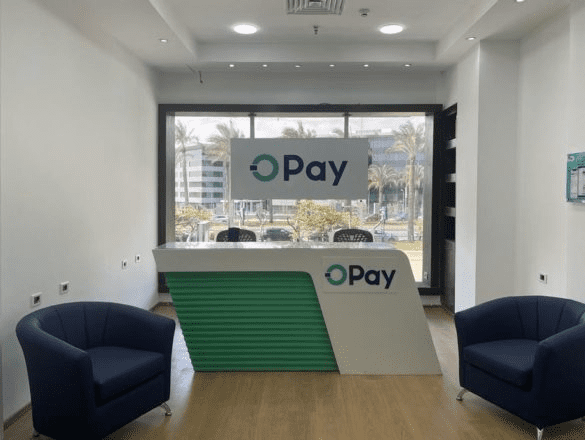Written by Anthony Emeka Nwosu
A Financial Shift in Motion
Something remarkable is happening in Nigeria’s financial space. While millions of people still struggle with unreliable bank apps, failed transfers, and endless POS charges, one fintech company has quietly redefined how Nigerians handle money. That company is OPay — a Chinese-backed digital finance platform that began as a modest mobile wallet but has now become one of the country’s most dominant financial institutions.
Today, OPay processes trillions of naira in transactions monthly, serving over 40 million Nigerians, and in many cases outperforming traditional banks in daily activity. What started as a convenience app has turned into a revolution — reshaping how Nigerians save, spend, and trust financial systems.
The 2023 Cash Crisis: OPay’s Defining Moment
OPay’s dominance was cemented during the 2023 cash scarcity, when the Central Bank’s naira redesign triggered widespread panic. Traditional banks faced app crashes, long queues, and ATM shortages. Nigerians couldn’t access their money, and confidence in the system plummeted.
While chaos reigned, OPay remained stable. Its mobile transactions were smooth and instant, giving millions a lifeline. Market traders, students, artisans, and transport operators all turned to the app that worked when nothing else did. That period didn’t just grow OPay’s user base — it changed behavior permanently. Many Nigerians simply never went back to their traditional banks.
Banking for the Unbanked
One of OPay’s most significant contributions is how it has made banking accessible to the unbanked and underbanked. With minimal requirements — often just a phone number and ID — millions of Nigerians who were previously excluded from formal banking now have accounts.
Rural dwellers, small business owners, and students can now open accounts in minutes — no paperwork, no long queues, no endless delays.

“Millions of poor folks in villages today have active bank accounts because of this app,” notes one user. “Even students don’t need to wait weeks to open an account. It’s instant, simple, and reliable.”
This accessibility has brought real inclusion, turning what was once a privilege for the city elite into an everyday reality for everyone — from farmers in the countryside to university students in hostels.
Everyday Banking, Simplified
OPay has become part of Nigeria’s daily life. Beyond major transactions, people now confidently use their OPay cards to pay for small items like candies, biscuits, and snacks at roadside joints, knowing the payment will go through without issues.
As another user shared:
“I remember going to a commercial bank to collect my ATM card — they delayed endlessly. That same day, I got my OPay card from a roadside agent. Since then, no stress, no issues. Who no like soft life?”
That level of convenience and reliability has built immense trust — the kind that traditional banks have lost over time.
Innovation Backed by Global Capital
Behind OPay’s success is solid international investment. Supported by Opera Group (with strong Chinese backing) and major global investors like SoftBank and Sequoia Capital China, OPay has leveraged foreign capital to expand aggressively.
This has allowed it to build vast infrastructure, deploy agents across Nigeria, and offer competitive transaction fees. However, it also raises questions about data control, local competition, and Nigeria’s financial sovereignty. As fintech grows, regulators must ensure that innovation does not come at the expense of national control or local enterprise.
A Double-Edged Sword: Empowerment vs. Dependency
OPay has empowered millions by making financial access simpler, faster, and cheaper. It has also created jobs for thousands of agents and small business owners. Yet, the platform’s foreign ownership and market dominance prompt deeper reflection.
If Nigeria’s financial ecosystem becomes too reliant on foreign-backed fintechs, what happens if investor priorities change or international relations shift? The question of who truly holds power over Nigeria’s digital economy remains open.
The Challenge for Nigerian Banks
OPay’s rise should be a wake-up call for Nigerian commercial banks. For too long, banks have relied on legacy systems, poor customer service, and frequent downtimes that frustrate customers. Nigerians are tired of spending hours waiting for failed transfers to reverse, dealing with unresponsive apps, or visiting physical branches for basic services.
The truth is simple: what the average Nigerian wants is reliability, not marble floors, fancy offices, or flashy adverts. They want systems that work — day and night — without endless apologies for “network issues.”
Can Nigeria’s commercial banks deliver on this simple mandate?
If they don’t, fintechs like OPay will continue to capture the trust — and wallets — of millions of Nigerians who are voting with their phones, not their feet.
Final Thoughts
OPay has changed the face of Nigerian banking. It’s fast, accessible, and inclusive — a true example of how technology can solve real-life problems. Yet, while celebrating this progress, Nigeria must also look inward. Local banks need to innovate, regulators must ensure fairness and security, and citizens must remain aware of who controls their data and money.
For now, one thing is certain: OPay works. Whether it’s sending money, paying bills, or buying a roadside biscuit, OPay delivers — and in a country where banking used to mean stress, that reliability has become priceless.
Written by:
Anthony Emeka Nwosu




